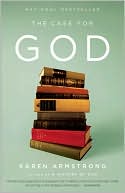Category Books
- Fiction Books & Literature
- Graphic Novels
- Horror
- Mystery & Crime
- Poetry
- Romance Books
- Science Fiction & Fantasy
- Thrillers
- Westerns
- Ages 0-2
- Ages 3-5
- Ages 6-8
- Ages 9-12
- Teens
- Children's Books
- African Americans
- Antiques & Collectibles
- Art, Architecture & Photography
- Bibles & Bible Studies
- Biography
- Business Books
- Christianity
- Computer Books & Technology Books
- Cookbooks, Food & Wine
- Crafts & Hobbies Books
- Education & Teaching
- Engineering
- Entertainment
- Foreign Languages
- Game Books
- Gay & Lesbian
- Health Books, Diet & Fitness Books
- History
- Home & Garden
- Humor Books
- Judaism & Judaica
- Law
- Medical Books
- New Age & Spirituality
- Nonfiction
- Parenting & Family
- Pets
- Philosophy
- Political Books & Current Events Books
- Psychology & Psychotherapy
- Reference
- Religion Books
- Science & Nature
- Self Improvement
- Sex & Relationships
- Social Sciences
- Sports & Adventure
- Study Guides & Test Prep
- Travel
- True Crime
- Weddings
- Women's Studies
The Case for God: What Religion Really Means » (Reprint)

Authors: Karen Armstrong
ISBN-13: 9780307389800, ISBN-10: 0307389804
Format: Paperback
Publisher: Knopf Doubleday Publishing Group
Date Published: September 2010
Edition: Reprint
Author Biography: Karen Armstrong
Karen Armstrong is the author of numerous other books on religious affairs—including A History of God, The Battle for God, Holy War, Islam, Buddha, and The Great Transformation—and two memoirs, Through the Narrow Gate and The Spiral Staircase. Her work has been translated into forty-five languages. She has addressed members of the U.S. Congress on three occasions; lectured to policy makers at the U.S. State Department; participated in the World Economic Forum in New York, Jordan, and Davos; addressed the Council on Foreign Relations in Washington and New York; is increasingly invited to speak in Muslim countries; and is now an ambassador for the UN Alliance of Civilizations. In February 2008 she was awarded the TED Prize and recently launched with TED a Charter for Compassion, created online by the general public and crafted by leading thinkers in Judaism, Christianity, Islam, Hinduism, and Buddhism to restore compassion to the centre of morality and religion. She lives in London.
Book Synopsis
Moving from the Paleolithic age to the present, Karen Armstrong details the great lengths to which humankind has gone in order to experience a sacred reality that it called by many names, such as God, Brahman, Nirvana, Allah, or Dao. Focusing especially on Christianity but including Judaism, Islam, Buddhism, Hinduism, and Chinese spiritualities, Armstrong examines the diminished impulse toward religion in our own time, when a significant number of people either want nothing to do with God or question the efficacy of faith. Why has God become unbelievable? Why is it that atheists and theists alike now think and speak about God in a way that veers so profoundly from the thinking of our ancestors?
Answering these questions with the same depth of knowledge and profound insight that have marked all her acclaimed books, Armstrong makes clear how the changing face of the world has necessarily changed the importance of religion at both the societal and the individual level. And she...
Kirkus Reviews
Fascinating journey through Western civilization's ongoing attempts to understand and explain the concept of God. Celebrated religion scholar Armstrong (The Bible: A Biography, 2007, etc.) creates more than a history of religion; she effectively demonstrates how the West (broadly speaking) has grappled with the existence of deity and captured the concept in words, art and ideas. Beginning in the majestic caves of Lascaux, Armstrong explores how religion became a meaningful part of prehistoric societies, and the ways in which these societies passed down their practices and ideas in the earliest forms of art. The author then moves on to early monotheism and its rivals, offering a brilliant examination of ancient Greek views on religion and reason, which laid the groundwork for so much of Western thought. Looking at the early Christians and Diaspora-era Jews in tandem, Armstrong delves into Talmudic study and midrash, as well as Christian adaptations of theological concepts. Throughout the book, the author argues against religion as an abstraction, noting that it most truly exists in practice. "Faith . . . was a matter of practical insight and active commitment," she writes. "It had little to do with abstract belief or theological conjecture." Nevertheless, scholars have always attempted to define and "prove" God, and Armstrong admirably outlines the best of them through the centuries, including Origen, Anselm, Pascal and Tillich. Armstrong claims that the "warfare" between science and religion is a myth perpetuated by those with axes to grind. Likewise, the modern atheist movement, "death of God" theology and even fundamentalism arise from extremists who see religion as correct doctrine,not correct praxis. Though mostly focused on the West, Armstrong maintains a global perspective, masterfully weaving in her solid understanding of the world's panoply of faiths. Accessible, intriguing study of how we see God. First printing of 150,000
Table of Contents
Introduction
Part I The Unknown God (30,000 BCE to 1500 CE)
One Homo religiosus
Two God
Three Reason
Four Faith
Five Silence
Six Faith and Reason
Part II The Modern God (1500 CE to the Present)
Seven Science and Religion
Eight Scientific Religion
Nine Enlightenment
Ten Atheism
Eleven Unknowing
Twelve Death of God?
Epilogue
Acknowledgments
Notes
Glossary
Selected Bibliography
Index
Subjects
 Theology
Theology  God - Theology
God - TheologyChristianity
 All Religion
All Religion  General & Miscellaneous Religion
General & Miscellaneous ReligionReligion Books
 Theology
Theology  God - Theology
God - TheologyReligion Books
 All Religion
All Religion  General & Miscellaneous Religion
General & Miscellaneous ReligionChristianity
 Christianity
Christianity  Theology
TheologyChristianity
 Christianity
Christianity  All Religion
All ReligionNonfiction
 Religion
Religion  Theology
TheologyNonfiction
 Religion
Religion  All Religion
All ReligionReligion Books
 Christianity
Christianity  Theology
TheologyReligion Books
 Christianity
Christianity  All Religion
All Religion
